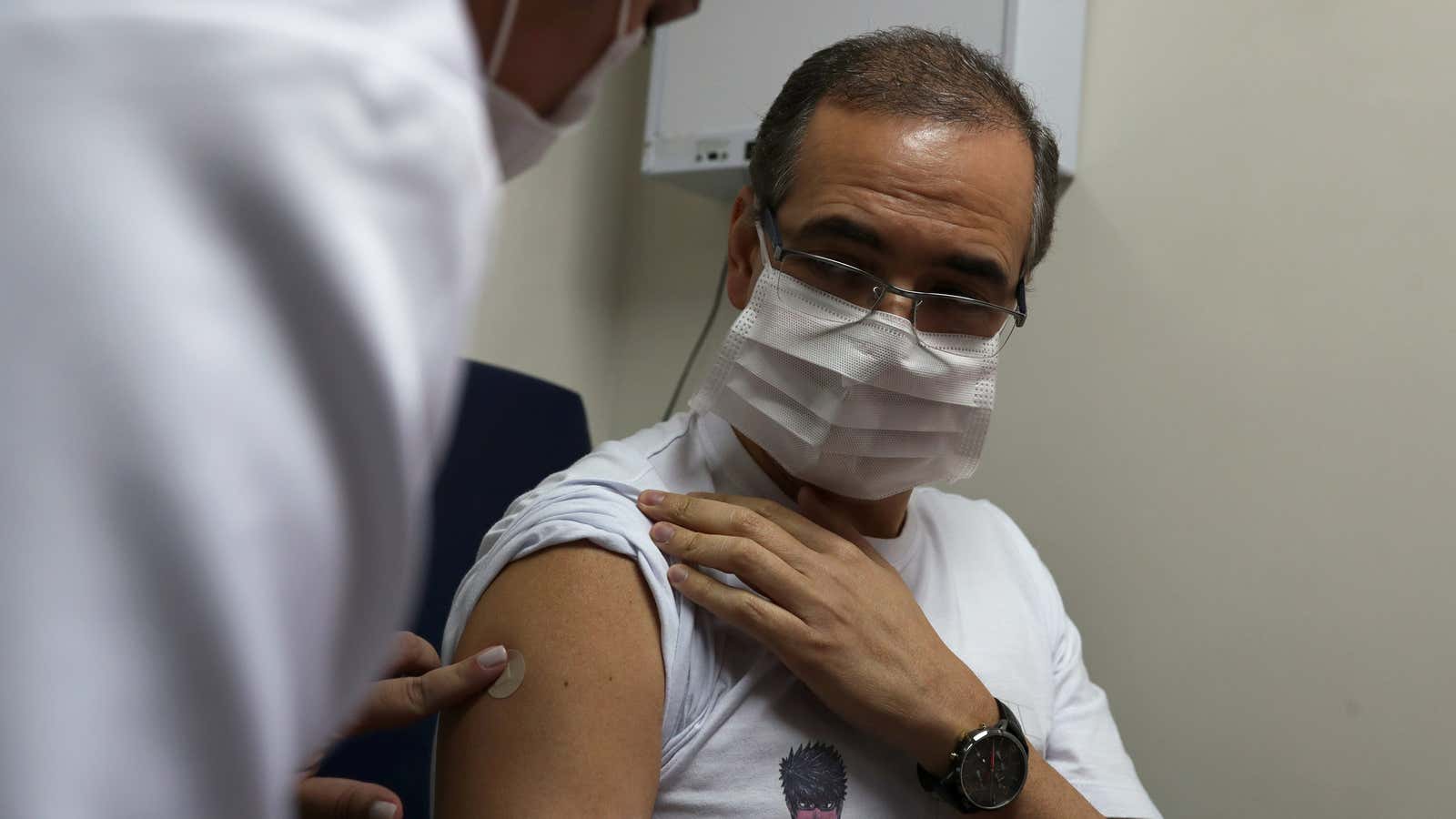Around the world, scientists are conducting studies at rapid speed with the hope of finding a coronavirus vaccine. Six companies are currently in the final stages of testing, of which three—Sinopharm, CanSino, and Sinovac Biotech—are in China.
No vaccine has yet to complete the all-important third phase trials, which establish efficacy and longer-term safety profiles by following thousands of participants. But that hasn’t stopped China National Biotec Group (CNBG), a subsidiary of Sinopharm, from telling state-owned companies that the vaccines are safe and ready for their employees to use.
A letter from a subsidiary of China TravelSky Holding Co, a state-owned travel company, to its employees in June claimed Sinopharm’s two coronavirus vaccines were safe and effective, and were available to employees of state-owned companies working at airports and in international travel, according to the Wall Street Journal. The letter did not acknowledge that the vaccines were still going through clinical trials. Similarly, a letter sent to employees at state-owned oil giant, PetroChina, offered the chance to be among the first to take a coronavirus vaccine and did not mention possible risks, according to the New York Times.
These state employees are not taking vaccines as part of clinical trials, but have been offered coronavirus vaccines on an “emergency use” basis, according to the Times. Though these volunteers aren’t part of a formal study, the data could provide further information about whether the vaccine is safe to use.
But no vaccine should be presented as definitively safe and effective while testing is ongoing, warn scientists. “It seems odd that a vaccine would be characterized as “safe” prior to the completion of phase three trials in tens of thousands of recipients,” says Paul Offit, director of the Vaccine Education Center at the Children’s Hospital of Philadelphia. The purpose of large, well-designed clinical trials is to test vaccines’ safety and effectiveness.
“They require hundreds if not thousands of participants over a long period of time because we need to detect potential adverse events that may not manifest immediately after administration,” says Alex John London, director of the Center for Ethics and Policy at Carnegie Mellon University. Telling people that a vaccine works before this has been proven has serious consequences. “Even if the vaccine itself is benign, if people think they are protected when they are not, they can expose themselves to risks they would otherwise avoid and increase their chances of falling ill,” says London.
This isn’t the first time China’s coronavirus vaccine studies have skipped usual protocol. Two weeks ago, SinoPharm said company executives helped “pre-test” the vaccine before it was approved for the first human trials. The company posted a photo online, and said those who volunteered were “giving a helping hand in forging the sword of victory.”
CNBG did not respond to questions about whether it informed employees of the vaccines’ testing status.
China has previously faced consequences for weak standards in producing vaccines. In 2018, a major drug manufacturer Changsheng Biotechnology was found to have falsified inspection records for rabies vaccines and produced children’s vaccines against whooping cough, diphtheria, and tetanus that failed to provide proper protection.
So far, the studies published by Chinese companies show strong results for the coronavirus vaccines under development. But until trials are complete, their worth remains unproven.
